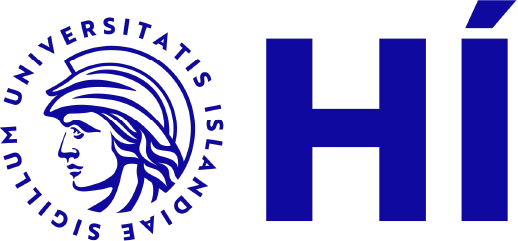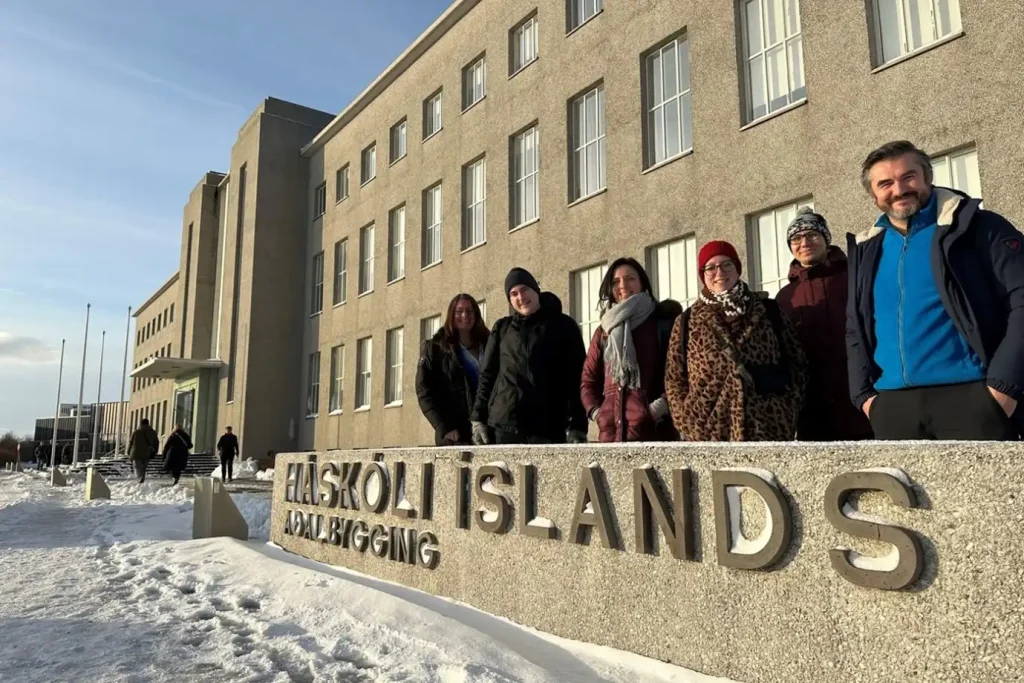The project focuses on enhancing the capacity and preparedness of Higher Education Institutions for a successful transition to digital education. Through the implementation of the project we aimed to learn about the experiences of (HEIs in e-learning and based on that to suggest how negative e-learning effects could be mitigated. From a more distant perspective the project aimed to (1) understand what is lost in the learning environment when it is shifted to e-learning; (2) provide teachers with training on how to deliver fulfilling education to students via e-learning and deal with issues such as isolation and lack of communication; (3) present the main outcomes for HEI staff on how to integrate more features from physical spaces into e-learning; (4) create a meta-platform for sharing training, tools, and findings, which would invite users to contribute content. The latter aimed at connecting different HEIs and other stakeholders through a platform that would last for years and would act as a lifeline for teachers who are just starting with digital education or who face problems with hybrid or distance learning. It also aimed to promote creation and innovative utilization of digital education content among teachers.
Implementation
The project was implemented following three major project milestones:
First and foremost, a desk and field research (R1) was conducted. Vilnius University was in charge of leading the result and their responsibilities mainly included but were not limited to the preparation of the research project (with contributions from project partners that provided feedback) and in a timely manner implementing the research among partners. The latter one included carrying out desk research on teachers, students and good practices related to e-learning, data collection by means of mobile ethnography and focus groups with HEIs staff, which were conducted by the selected partners, as well as concluding the research results into a national report. The conducted research identified the current problems that students and educators experience together with insights on how e-learning could be improved and adapted.
Secondly, a meta-platform called PLACE (R2) was developed. The meta-platform provides a variety of tools and methods to enhance e-learning in order to avoid students’ isolation, create places for social interaction, motivate students, and strengthen students’ and teachers’ mental and emotional health. In charge of this platform was CSI, though there was a joint effort in meta-platform planning through providing feedback on the established framework and requirements of the platform. In regards to the technical development and testing of the platform, partners provided feedback and contributed to translations in their national languages. The project partners also contributed to the engagement of key users for the PLACE meta-platform, shared their own feedback on the developed administrator manual and promoted the platform, as well as provided required material.
Lastly, social digital training (R3) was executed. This result was led by the coordinating organization. Here the coordinating organization was responsible for managing the work of creating training material and later on implementing training aimed at improving the way teachers deliver e-learning in partnering countries. As the coordinating organization was the one to propose a social digital training framework with learning units (modules), every partner individually was responsible for development of one out of six modules. Before the development of the platform, partners were required to review the developed macrostructure (framework) and microstructure (learning units) of the training. Only then partners proceeded with content development of modules and their learning units. After they were developed, UAB Theoria was in charge of reviewing and providing feedback on the developed modules. When feedback was integrated and modules were uploaded to the meta-platform, KMOP created a roadmap for the implementation of the training, while University of Ljubljana developed a training guide. After this material was prepared, UAB Theoria continued with guidance of the training that was organized with HEIs staff. Every project partner (except for the coordinating partner) organized pilot training in their respective countries in order to test developed contents and collect feedback from target groups. Based on the feedback, improvements were made by partners, which were followed by translations into national languages and finalization of the outputs.
Besides the three main project results that were implemented, administrative, managerial and dissemination activities were carried out throughout the project in order to ensure the quality and sustainability of the project. All partners were in charge of delivering dissemination activities and contributing to the development of dissemination material. Three partners (Haskoli Islands, KMOP, Vilnius University) also were obliged to organize a multiplier event in their respective countries.
Results
Concrete outputs and other results of the project were:
– Management: ensuring sound project management through providing project management toolkit, Quality Assurance and Evaluation Plan, Evaluation Reports;
– R1: Preparing the research protocol as guidelines for carrying out research, which laid theoretical grounds for the following part of the project;
– R1: Identifying existing tools and platforms for enabling remote learning in HEI;
– R1: Identifying the problems associated with remote learning in HEI;
– R1: Compiling national reports and executive summaries overviewing the results of the research that was conducted in Belgium, Cyprus, Greece, Iceland, Lithuania, and Slovenia;
– R2: Developing the conceptual design of the meta-platform that was developed in joint effort during international meetings;
– R2: Identifying elements that could lead to a proper structure for a new digital platform;
– R2: Developing digital meta-platform PLACE in English and national languages;
– R2: Developing PLACE administrative manual for the educational platform implementation and proper use of the platform;
– R2: In order to make the platform more accessible to the wider local community, providing translations of all the contents from the meta-platform into national languages: Greek, French, Icelandic, Lithuanian and Slovenian;
– R3: Developing modules of the social digital training that serve as a basis for the meta-platform (as they are uploaded there): (M1) Professional Engagement; (M2) Digital resources; (M3) Teaching and learning; (M4) Assessment; (M5) Empowering learners; (M6) Facilitating learners’ digital competence;
– R3: Developing a Social Digital Training Implementation Roadmap and Trainers Guide;
– R3: Implementing training for HEI staff as a means to test out the developed modules among users;
– R3: Providing translations of the social digital training materials (modules);
Dissemination: taking active part in project dissemination by compiling articles (for the website), delivering publishing research articles introducing the project results, presentations at international conferences, etc.;
– Dissemination: developing project’s brand and supporting templates.
Upplýsingar á íslensku
PLACEDU stefnir að því að auka getu háskólastofnana til að stjórna áhrifamiklum breytingum í átt að fjarnámi. Áskorun PLACEDU er að ákvarða hvað tapast í námsumhverfinu þegar náminu er breytt í fjarnám. Þess vegna mun PLACEDU búa til vefvettvang þar sem kennarar geta náð sér í leiðbeiningar og efni til að styðja við og efla nemendur sína í fjarnámi.
Í framhaldi af því þegar allt nám breyttist í fjarnám í COVID-19, þá varð til þörf á að skilja betur hvaða grunnþættir náms skipta máli þegar það fer fram á ákveðnum „stað“ og hvernig við getum flutt þessa þætti með okkur inn á þann „stafræna stað“ þar sem fjarnám fer fram.
PLACEDU verkefnið miðar að því að skilja betur hvað er að virka vel í staðnámi og miðla niðurstöðunum á vefsvæði stafrænnar menntunar.
Helstu verkefnin eru að skilja hvernig hægt er að nota niðurstöður úr rannsókninni til að betrumbæta fjarnám. Rannsóknin er byggð á ýmsum aðferðum; 1) Taka saman niðurstöður um það fjarnámsumhverfi sem er til staðar (e. desk research) með niðurstöðum úr öðrum rannsóknum og bestu starfsvenjum í fjarnámi; 2) Safna gögnum með farsímaetnógrafíu á netfundum og 3) Rýnihópaviðtölum við háskólakennara.
PLACEDU vefurinn er hannaður til að safna saman ýmsum verkfærum og aðferðum um hvernig sé hægt að efla fjarnám sem forðar nemendum frá einangrun, skapar rými fyrir samskipti og félagslega virkni ásamt því að styrkja nemendur og kennara andlega og tilfinningalega.
Boðið er upp á sérstaka þjálfun fyrir kennara sem hefur það markmið að styrkja þá sem fjarkennara og hvernig þeir kenna fjarnám. Reynt verður að vinna með og útrýma þeim neikvæðu þáttum fjarnáms sem komu upp á yfirborðið þegar skólar voru lokaðir í COVID-19.



